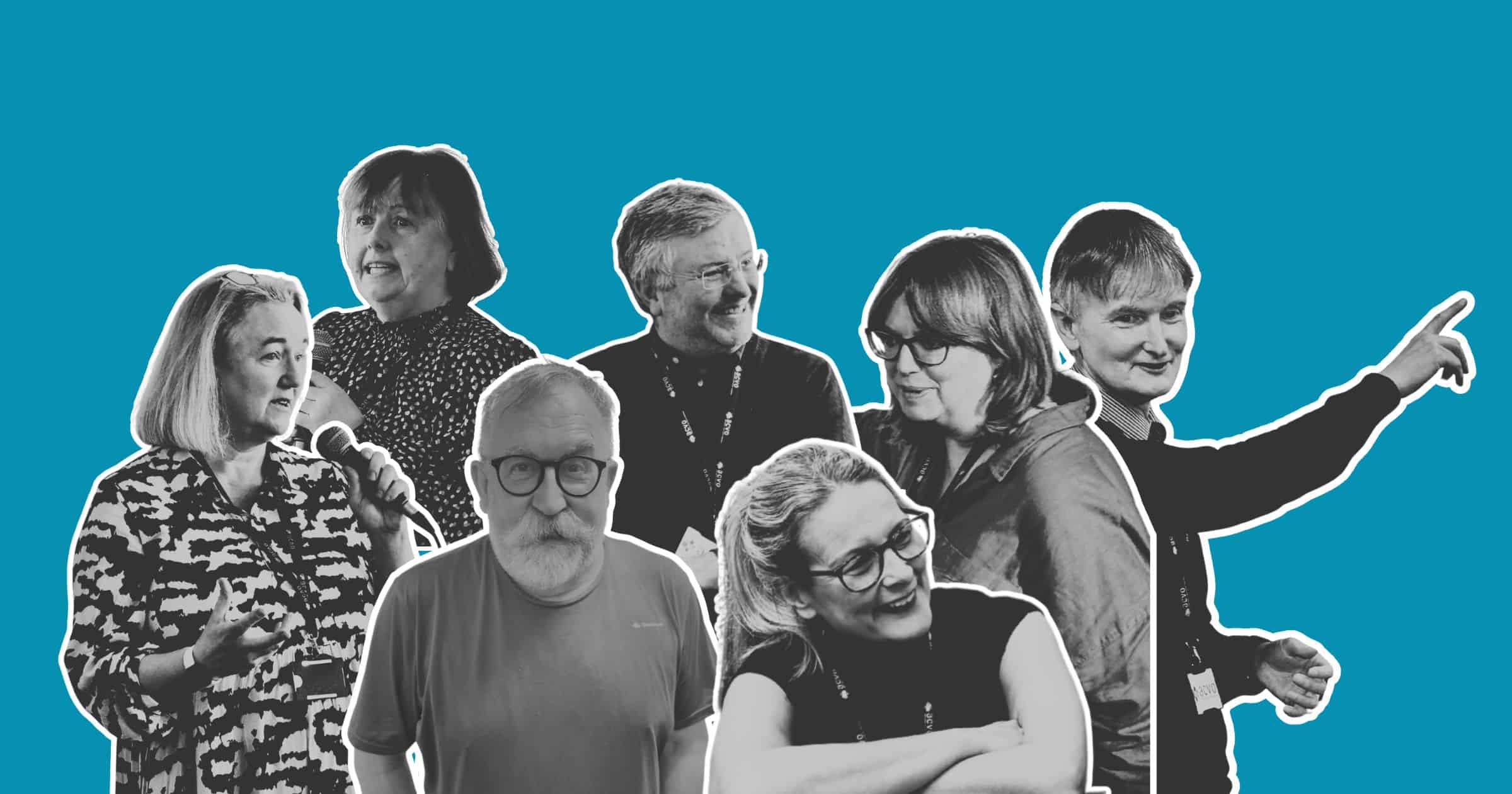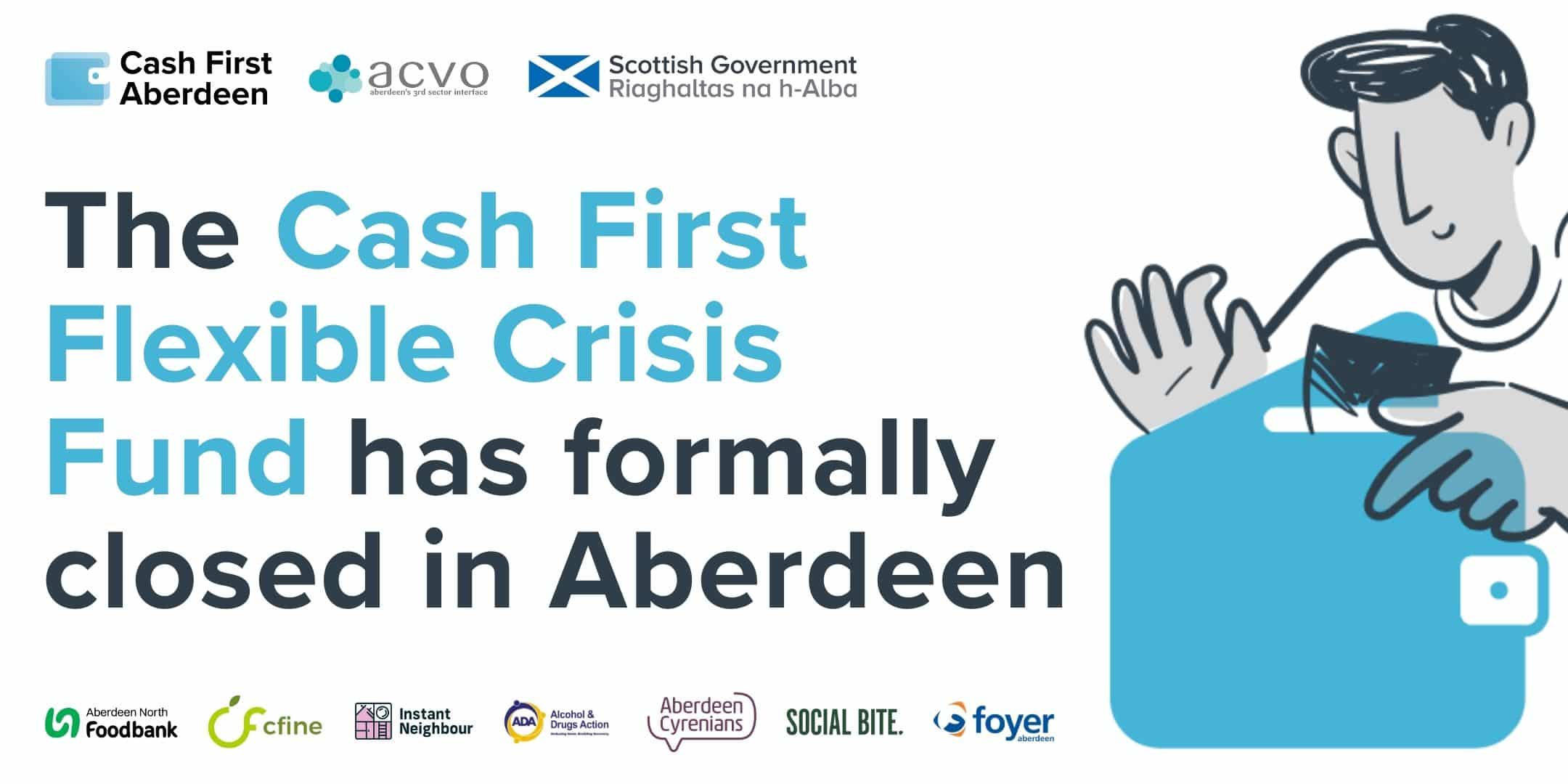My role here at ACVO has afforded me the opportunity to meet, support and learn from hundreds of fundraisers. Many would not even identify themselves as fundraisers; they may wear multiple ‘hats’ within the organisation they work or volunteer for. Whether they are professionally paid fundraisers for a large national charity or volunteer to help with raising funds for a small community-led group, new research has highlighted the toll raising funds may be having on their own mental health and wellbeing.
There is no doubt that raising funds is stressful. This year I have experienced first-hand the impact the challenging funding landscape is having on those responsible for completing applications and organising initiatives to try and literally ‘keep the lights on’ and their colleagues in a vital front-line job. Cuts to public sector funding and rejection after rejection from funders who are overwhelmed with applications is most definitely taking its toll here in Aberdeen City.
When I came across Michelle Reynolds research paper – Caring too much: The burnout dilemmas faced by fundraisers and the emotional toll of a fundraising career – I felt it was important to share it widely. Whether you are the person in your organisation responsible for raising funds, a member of the Board or a CEO of a third sector organisation, I would encourage you to take ten minutes to read this paper.
Like Michelle, I hope our sector will work collectively to build support systems, interventions and policies that nurture emotional wellbeing of those who dedicate themselves to effecting real change and the pursuit of positive social impact. ACVO TSI has a role to play here too, and this is some-thing I will be championing over the coming months. You can download Michelle’s paper here Stress & burnout | Rogare, and please visit acvo.org.uk/funding to find out how to access funding support from us.
So many funds, so little time! How not to become overwhelmed and set yourself up for success.
Funding opportunities can often feel like buses…you wait ages for one and then they all seem to turn up at once! My colleague (also a Claire), who brilliantly manages the Funding Opportunities page on our website, hasn’t experienced a month like it and is working tirelessly to get these online to give you as much time as possible to apply.
The funding landscape is constantly changing and can feel both challenging when opportunities are few and far between and overwhelming when you see lots of great possibilities with very short windows of opportunity to apply. Planning in such a volatile environment can seem difficult and finding the time to write applications, especially if you are volunteer led, feels impossible. So here are just a few hints and tips which I hope will help you to effectively apply for funding during this busier time in the funding calendar – setting yourself up for success:
1.Read the guidance. It sounds obvious, but please read all the guidance to see if your project or organisation is eligible. Although there appears to be more opportunities available at the moment, the competition is still fierce. Some national funders have reported a 3000% increase in applications. Only apply if if your organisations and project strongly aligns to the aims and priorities outlined by the funder.
2.If there is an opportunity to engage with the funder, I strongly recommend you take it.Whether it is picking up the phone, writing an email or attending a webinar – if you can chat through your project before applying, please do so. Funders understand how much time has to be devoted to writing applications and what an onerous task this can be. They honestly do not want you to devote time to writing an application that is ineligible or won’t score highly. It also enables you to build a positive relationship with the funder, setting you up for success.
3.Be realistic and remember ‘quality over quantity’. It is better to submit two very strong and tailored applications rather than four that you have rushed. Think about the strategy you use when applying for a job. Sending out dozens of speculative, generic CV’s rarely results in a job offer. A targeted, well written and thoughtful application form is far more effective. Resist the urge to ‘cut and paste’ from past applications. If you do, make sure that you proofread carefully and tailor where you can. By all means, use AI as part of your toolbox, however, remember that the funder wants to hear about the project and your organis-ation from you. I plan to offer training on how to effectively use AI for fund-raising later this year.
4.Get in touch with me. If you want to chat through any opportunities, need support with writing the application, a ‘critical-friend’ to provide constructive feedback and proofread or a reference for the funder, just email me at claire.shaw@acvo.org.uk and we can arrange a quick call, teams meeting or a face-to-face chat in the office.
5.Finally, regularly revisit our Funding Opportunities page on the ACVO website. The funding landscape is constantly changing, and funders very often provide a very short window of opportunity to apply to try and avoid being overwhe-lmed with applications. You can easily miss an opportunity and so it is important to regularly visit funding search sites such as ours (handpicked opportunities selected from multiple websites that our relevant for out third sector in Aberdeen City), Funding Scotland and Foundation Scotland. Also subscribe to funders newsletters. ACVO and Aberdeen City Council offer this service to members and subscribers find out more at acvo.org.uk/funding
This article originally appeared in the June 2025 edition of ACVO News, our free monthly digital magazine for and from the the third sector in Aberdeen. Read the current and past editions, and sign up to our mailing list, at acvo.org.uk/acvo-news





